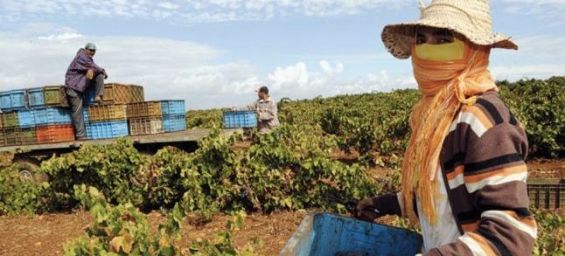Morocco's agricultural sector represents up to «15% of GDP», thus constituting the main source of employment in rural areas. However, its contribution to the national economy is threatened by the growing scarcity of water resources, with nearly 85% of the country's renewable resources already used by agriculture.
Water scarcity is further exacerbated by the effects of climate change, leading to more frequent and widespread droughts, which compromises food security and amplifies the harmful economic, social, and environmental impacts on the population.
Adding to these challenges are global geopolitical changes, marked by increasing uncertainties regarding food trade and prices, exacerbated by health crises and international tensions such as Covid-19 or the conflict in Ukraine. This situation makes the country particularly vulnerable due to its heavy dependence on food imports.
Despite significant efforts, public investments in the agricultural sector remain insufficient, barely exceeding «4% of the general state budget», below the 10% target recommended by the Malabo Declaration.
Despite the implementation of the «Green Morocco Plan» between 2008 and 2019, which helped reduce the «agri-food trade balance deficit», the low rate of import coverage by exports remains a concern, especially in the face of future challenges such as population growth and the volatility of international markets.
Thus, to ensure a sustainable future for Moroccan agriculture, experts warn of the urgency of implementing concrete measures such as revising agricultural policies and water use, as well as strengthening public investment in the agricultural sector.
«Optimizing governance in the agricultural sector»
Scientists have emphasized the need for an overhaul of agricultural governance, for example by establishing national and regional debates to guide the future of the sector. They propose adopting an integrated and systemic approach, with operational coordination at different scales to promote agricultural development, taking into account water scarcity.
«Strengthening the enforcement of existing laws» and adopting new ones is also recommended, particularly to recognize the status of the farmer and establish environmental taxation.
Furthermore, water management must be improved by integrating the «Water-Energy-Agriculture-Natural Ecosystems Nexus» approach, requiring an integrated approach to minimize tensions and strengthen synergies between these four sectors.
Finally, the promotion of water sobriety, the accumulation of scientific knowledge, and the involvement of farmers in the development process are major axes to optimize governance.
Guaranteeing food sovereignty
Regarding food policy, it must be reconsidered to guarantee the country's food sovereignty and preserve its natural resources. This involves giving more support to small family farming, considered the cornerstone in the fight against food insecurity.
Experts recommend reorienting the agricultural model to prioritize meeting local food needs and encouraging the development of agricultural sectors with high economic and nutritional added value. They advocate rebalancing agricultural production between the domestic market and export by choosing products suited to national consumption. It is also necessary to ensure national seed security to reduce dependence on foreign varieties, which requires investments in research and the preservation of local seeds.
The revaluation of pastures and livestock will in turn contribute to strengthening food sovereignty, by implementing collective programs to monitor animal health. These initiatives include the prevention and treatment of diseases, as well as the provision of veterinary care to vulnerable small farmers.
Strengthening the sustainability and resilience of the agricultural sector
In the face of climate change, Morocco will have to undergo an urgent transition to resilient agricultural systems, experts affirm. They advise the implementation of climate change adaptation programs, which include actions such as water-agricultural infrastructure development, natural resource conservation, as well as the promotion of climate-smart agriculture.
Proactive risk management, better economic integration of the agricultural sector, and a sustainable financing model are also proposed. Finally, boosting scientific research and technological innovation will help strengthen the sustainability and resilience of the Moroccan agricultural sector. Specialists remind us that developed countries allocate around 3% of agricultural GDP to advanced agronomic research.





 chargement...
chargement...













